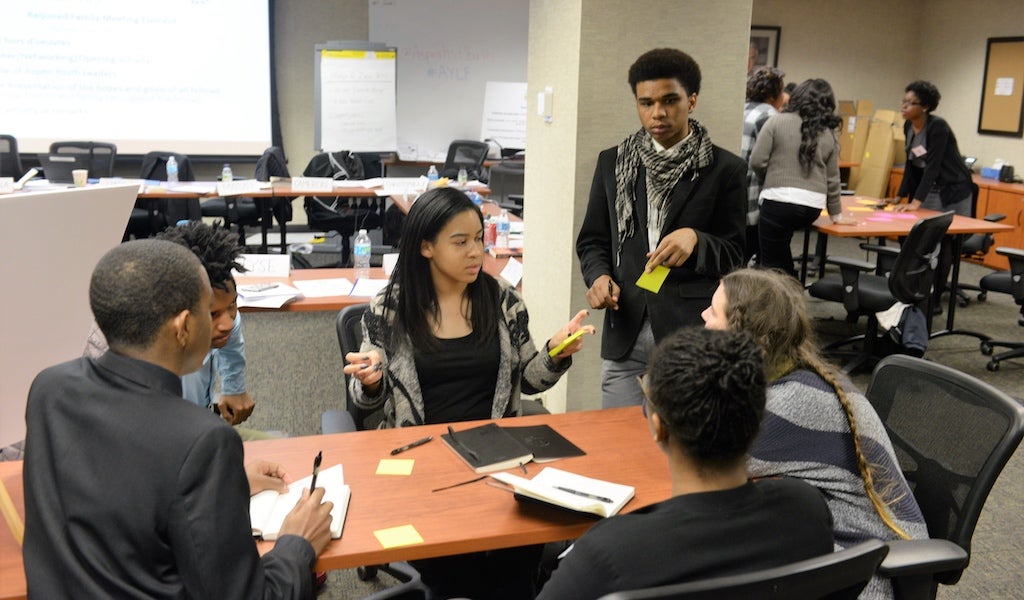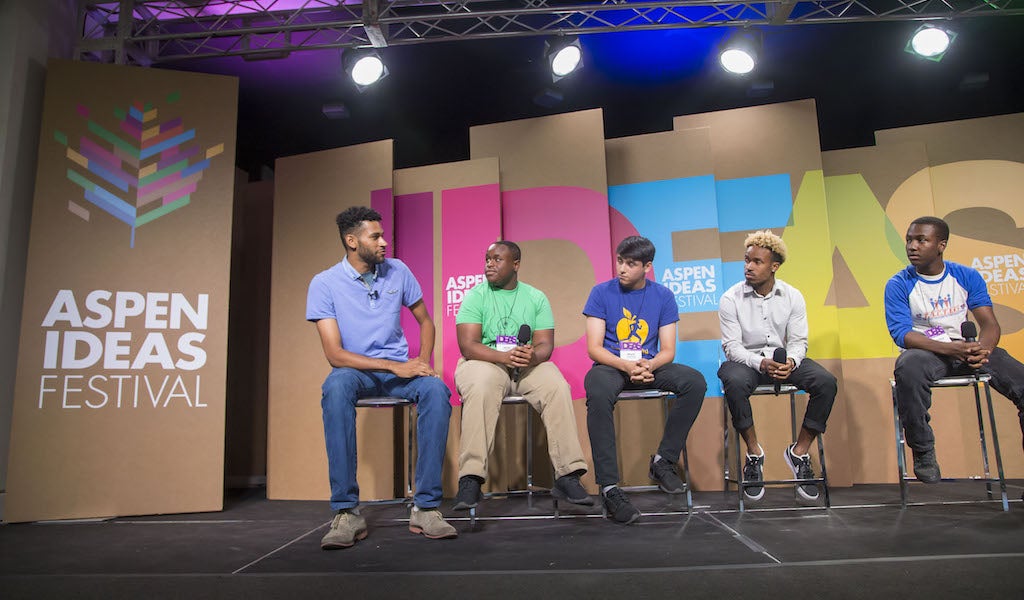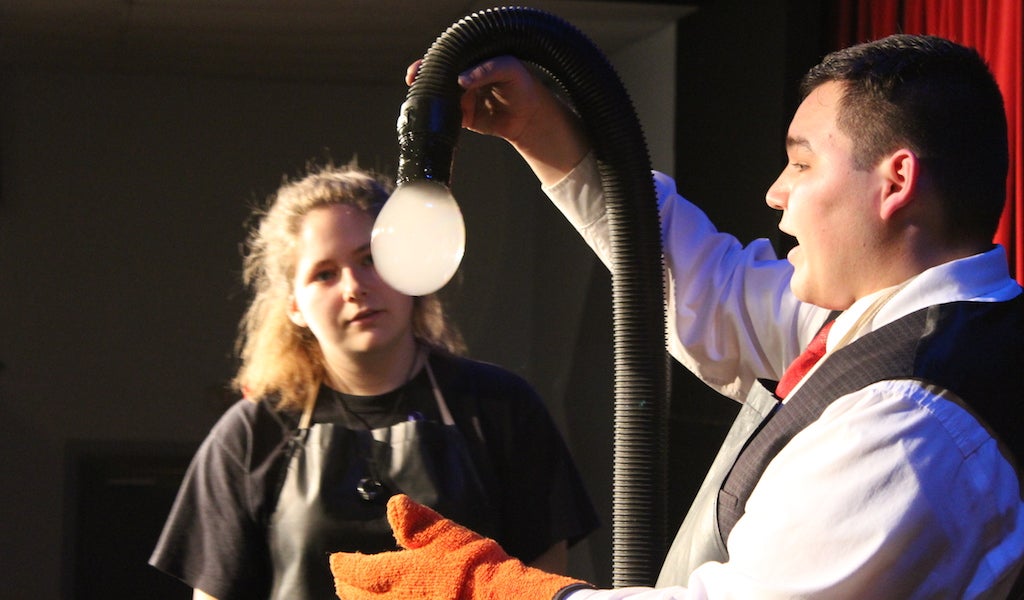The new Youth & Engagement Programs division is training young leaders to make change across the country—and across the Institute.
Ideas are the lifeblood of the Aspen Institute—ideas that challenge previously held worldviews, solve problems, and build community to create the Good Society. But who will lead the charge to generate breakthrough ideas in the years to come?
That’s where Youth & Engagement Programs, the newest division of the Institute, comes in. Youth & Engagement puts a strategic focus on the next generation by operating a variety of programs that work directly with young people ages 14 to 24 in urban and rural communities nationwide. The goal is to develop young leaders, promote effective civil discourse, activate youth voices and agency through civic engagement, and increase youth access to social capital.
“We focus on how to get young people involved in effective discourse across disciplines—everything from the urban-rural divide to racial or religious divides,” Raj Vinnakota, the executive vice president of Youth & Engagement Programs, says. “How do we get young people to reach across divides, work together, and understand each other?”
When Y&E was established, it brought existing programs like Aspen Challenge under its umbrella—and the team has been busy looking at opportunities to create new initiatives, too. Y&E now runs programs like the Aspen Young Leaders Fellowship, a project to develop the next generation of leaders who want to solve problems in their own communities, and the Youth Commission on Social, Emotional, and Academic Development, which engages educators, families, researchers, and policymakers to fully integrate social and emotional learning into the nation’s schools. This new focus on youth is critical: in order for the Institute to maintain its long-term relevance, it needs to work more directly with younger and more diverse people.
After visiting Ferguson, Missouri, with the Communications and Society Program in the wake of the civic unrest following the shooting of Michael Brown by a white police officer, Walter Isaacson was inspired by the youth activism and voices he heard. He decided with the Institute’s Communications and Society Program to create a new division to empower young, thoughtful, socially conscious leaders. Diversity of age, geography, race, and socioeconomics was a priority.
“We provide opportunities for the people who aren’t so obvious—people who have been forgotten or underestimated,” Tre Maxie, the division director of Youth & Engagement Programs, says. “We look for young people who are willing to grow and try new things, who have some type of concern or interest in the community. Someone seeking something larger than his or her current circumstance.”
Youth & Engagement Programs aren’t just reaching younger audiences for the Institute—they’re reaching new pockets of America, too. The Aspen Young Leaders Fellowship currently has programs in Newark, New Jersey, and St. Louis, Missouri, and it will launch a third site in the Arkansas and Mississippi deltas next spring. These are urban and rural areas where the Institute has not traditionally had a footprint. Aspen Challenge, a program that asks students to design solutions to problems in their own neighborhoods, launches in new cities every year: so far, it has reached students in Los Angeles, Denver, Philadelphia, Chicago, and Washington, DC. The program will launch in Dallas in 2018.
“Young people have great ideas,” Jackie Shiff, the Youth & Engagement director of strategic partnerships, says. “The students from Wendell Phillips Academy, the 2017 winner of the Aspen Challenge Chicago, created a real, scalable solution to help repair what is arguably the most pressing issue in Chicago: improving police-community relations.” Through Y&E, the Institute dares young people to be bold and to be real agents of change in their communities and beyond.
Youth & Engagement’s rapid expansion since 2015 is setting the stage for years of future impact. “Embedded in everything we do, in our very operating culture, is piloting and measurement of impact before scaling,” John P. Dugan, the Youth & Engagement director of program quality, design, and assessment, says. If that sounds like a business-development plan, that’s because Dugan is an academic leader in the field of leadership development. Under his direction, the division is building an evaluation mechanism so that evidence-based practices can be infused into the Institute’s programs.
Youth & Engagement is also making a serious effort to include youth in all aspects of the big conversations happening today—including those close to home. Y&E has reached out to nearly every facet of the Institute itself, Vinnakota says, to see where the division can create opportunities for young voices to be heard.
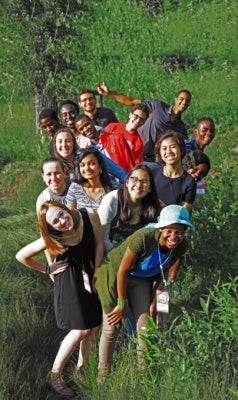 That means working closely with the Aspen Global Leadership Network to build a model for the Aspen Young Leaders Fellowship, which incorporates lessons learned from the AGLN’s work with experienced leaders. Scott Bush, a Henry Crown fellow and founder of AYLF, says, “The Institute now has the capacity to work with young people across the globe on values-based leadership development. The Aspen fellowship was life changing for me as an adult, and I’m excited to see the work being extended to young people.”
That means working closely with the Aspen Global Leadership Network to build a model for the Aspen Young Leaders Fellowship, which incorporates lessons learned from the AGLN’s work with experienced leaders. Scott Bush, a Henry Crown fellow and founder of AYLF, says, “The Institute now has the capacity to work with young people across the globe on values-based leadership development. The Aspen fellowship was life changing for me as an adult, and I’m excited to see the work being extended to young people.”
It also means forming partnerships with The Bridge, the Sports & Society Program, the Center for Native American Youth, and the National Commission on Social, Emotional, and Academic Development to start a dialogue about the issues young people are most passionate about. It means sharing programming, hosting joint events, and supporting Institute programs with research. “There are places where we don’t need to recreate the wheel,” Vinnakota says. “We can lean into the experience of the Institute.”
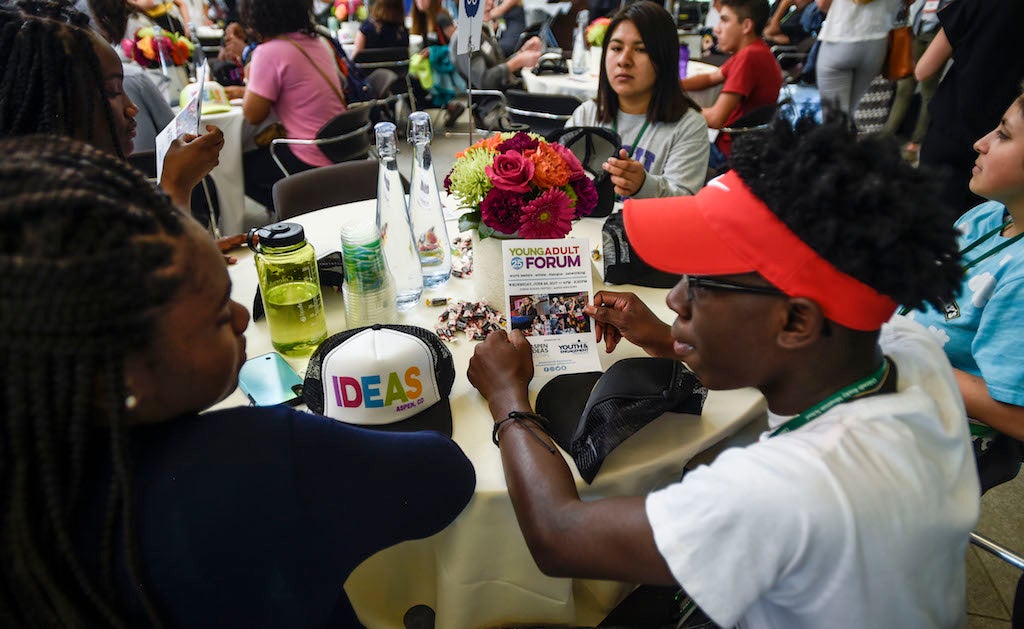
And Y&E has other plans in the works, too, like a youth leadership-development conference. The event will be designed by a national youth advisory committee and bring together young people from all over the country. It will also unite multiple programs—like Aspen Challenge, the Aspen Young Leadership Fellowship, and AspenX—in one locality for broad, interactive discussions. This will allow the Institute to serve more young people more effectively and to gather critical insights about youth development for educators, practitioners, and policymakers nationwide.
“Young people’s voices need to be engaged across a tremendous number of areas,” Vinnakota says. “Young leaders need to be effective at voicing their own perspectives.”
